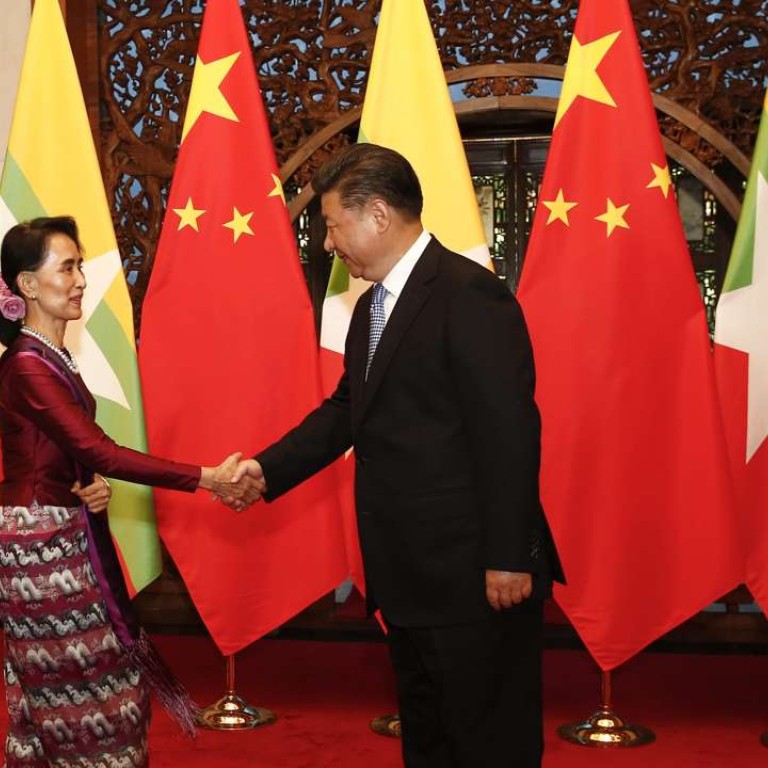
China and Myanmar’s sensible approach bodes well for future ties
Both countries are aware of the vast economic benefits of working together as equals
Neighbours should have good relations and that has to be especially so for China and Myanmar. It is why state counsellor and de facto leader Aung San Suu Kyi chose Beijing ahead of Washington for her first foreign trip outside Southeast Asia. The red-carpet welcome she received and meetings with President Xi Jinping and Premier Li Keqiang during the five-day visit made plain that the view is shared. Both sides have concerns, but the manner in which they were broached showed a pragmatic and practical approach.
Myanmar is among Asia’s poorest countries and China offers its best chance for development and prosperity. A peace agreement with ethnic rebel groups, some with Chinese links on the northern border with Yunnan province, is a priority for Suu Kyi and Beijing will be an important mediator at upcoming talks. China is Myanmar’s biggest trading partner and investor, although Chinese companies have been reducing their interest in recent years after the former ruling military in 2011 put on hold the controversial US$3.6 billion Myitsone dam amid environmental concerns and protests. Although the project is a sticking point in smooth relations, no deal was made during Suu Kyi’s visit; she announced earlier that a commission would look into the matter and make recommendations.

Nor was ideology allowed to get in the way. Suu Kyi is an internationally recognised democracy icon and her National League for Democracy party ended 54 years of military rule in April after landmark democratic elections. The US was a leading supporter and the economic sanctions it imposed were a significant factor in the junta’s decision to implement political reform. Yet, she understands China’s importance to her country and the need for the two to be on the best of terms.
Myanmar’s mineral wealth and geographic location at the intersection of China, India and Southeast Asia give it vast opportunities. Being on China’s belt and road and offering access to the Indian Ocean, it provides access and connectivity: gas and oil pipelines to Yunnan began operation in 2013 and 2015. But the US and its ally Japan also have significant investment and business interests and the lifting of remaining American sanctions is an attraction that cannot be ignored. Suu Kyi’s challenge is to balance interests.
Beijing and Naypyidaw are only too aware of the possibilities. It is why Xi and Suu Kyi are treating matters so sensibly and realistically. By working as equals, the benefits will be mutual.

